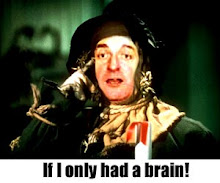A Child Across the Sky
 A Child Across the Sky
A Child Across the SkyPart of the same fictional universe within which his "Bones of the Moon" and "Sleeping in Flames" occur, Jonathan Carroll's "A Child Across the Sky" is a strange meditation on evil, art and cinema. After director Weber Gregston's best friend commits suicide, he is supernaturally summoned by his friend (via videotape) to complete his friend's slasher movie. Among those aiding him in his task is a little girl who may or may not be an angel.
The more I read of Carroll the more I am torn in two, but in this novel that is not only right, but almost the point of the story. The complexity of life, both physically and morally, is a prime concern for Carroll. He wants a black and white order, and sometimes succumbs to its allure (witness the climax of 'Bones of the Moon'), but he is fully conscious of the falsity of such a perspective. I still feel he is a romantic who ultimately underwrites all his work with this binary division, but he's no fool and his explorations of the theme make for some fascinating writing. Good may be real, and Evil too, but they play a very bewildering game of chess. Everything is compounded of this confusion. The richness he almost fanatically brings to his characters is proof of this.
In creating a rich, fictional world (one with recurring characters and its own consistent history, eg. the great Californian Earthquake), yet one that shares some characteristics of our own world (eg. an airport terrorist attack from the Eighties) he inevitably generates a certain alienation in the reader. The constant references to films never seen (because they were never made) is annoying, for instance. It seems to highlight Carroll's hunger to be on celluloid (according to IMDB he's only participated in the production of one, 'B', movie).
His very real influence on Hollywood is all over this tale. From 'Drop-Dead Fred' to 'In the Mouth of Madness', the seeds of much of common cinema culture is contained (and originates) here. People have been 'borrowing' from his work for ages. (Ironically part of this story is concerned with just that kind of theft.) He does this kind of dark fantasy better than any of them (yes, including you, Mr Carpenter!). But, and this is probably part of the reason for his failure to be realised on screen, his bizarre events often serve as springboards to pungent philosophizing. The rationale for their happening (eg. a bird tattoo coming to life) loses much of its persuasive power (when indeed it is persuasive) once divorced from these ramblings.
Of course, he borrows too and much of this book is plainly inspired by the Freddy, Jason, Candyman and Pinhead movies that haunt the contemporary horror genre. 'Candyman', for instance has a score by that pop minimalist, Philip Glass. Carroll has rival minimalist Steve Reich as the composer for the films of his fictitious monster, Bloodstone. Of course what isn't acknowledged is that Steve Reich just happens to be Carroll's half-brother. Jokes within self-referential jokes is the Carroll way. If there is one common thread in his work though, it is the eruption of the fantastical into the real world and vice versa.
The ending to 'A Child Across the Sky' left me angry. Rightly. Tied up quickly, though ambiguously, it was a typical Carroll ending, but all the more memorable for that. I hated it. I loved it. Damn it, he's good.
Labels: Fantasy, Horror, Jonathan Carroll


0 Comments:
Post a Comment
<< Home